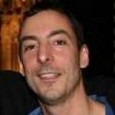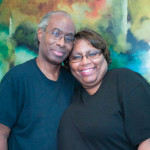“We live in the oldest per capita county in the oldest per capita state of the Union,” observes Dr. Allan Teel of Boothbay Region Health Center. “Aging matters around here and there’s a desperate need to pay attention to the things that make a difference.”
With this stark reality in mind, Teel and the board of the non-profit health center have embarked on a yearlong research program aimed at reducing or reversing cognitive decline. Thirty eager recruits strong, the program will be based on research conducted by Dr. Dale Bredesen and described in his book “The End of Alzheimer’s.”
Dr. Bredesen’s has proposed that there are (at least) 34 contributing factors that, in any combination, can cause anything from mild cognitive impairment to full-blown Alzheimer’s disease. And while that number may be somewhat arbitrary and susceptible to future modification, a diagnosis of Alzheimer’s disease has been, and continues to be, almost universally viewed as progressively debilitating- if not outright fatal. And yet Dr. Bredesen has proved that it is also reversible. It requires lifestyle changes though – what you eat, how you exercise, how you sleep. But lifestyle modification aren’t necessarily the core of the program: testing for and treating nutritional and hormone deficits (as well as occult infections and imbalanced gut microbes) can produce remarkable results. Lifestyle changes are basically what keep the improvements holding steady.
Teel, a family doctor with more than 40 years’ experience working with geriatrics and researching their needs, will head the program. It was launched in January. Thirty patients enrolled in the first cohort and there is a waiting list of people hoping to get into the second cohort, which Teel and Seybold anticipate starting in June.
“We’re very excited,” said Teel. “It’s a small initiative and there’s much we don’t know, but we have Bredesen’s methods. We’ll be meeting as a group once a month and there’ll be seminars once or twice a month to talk about diet, exercise, changing habits, and to offer support. All the patients will have baseline tests done – blood work, brain scans, cognitive testing – and we’ll retest at six months and again at 12 months.”
The program participants, who range from their mid 60s to late 80s, are all peninsula residents and, said Seybold, “Even if you’re not in the actual program you can still take part, come to the seminars, learn about the lifestyle changes, and follow along.”
The program and seminars are free to all, but, said Seybold, “Funding is definitely tough. We’re applying for grants but we could certainly use some help on that front.”
“Little by little traditional established medical care is acknowledging that for cognitive decline the few drugs that we have don’t make much difference,” said Teel. “But there is tantalizing evidence that exercise, diet, purposeful living, music, art ... all these things do make a difference.”
Cross country to just about the mirror opposite of Booth Bay, a similar if somewhat boutique-y version of Dr.Teel’s program also recently opened its doors-- in San Diego county, at North County Natural Medicine center in Encinitas.
The center’s founder, Dr. Heather Sandison, learned from her study under Dr. Bredesen how all components of one’s life affect the mind and brain. "Alzheimer’s has long been viewed as a one-way street. Once a loved one’s signs of cognitive decline begin to appear, the disease will continue to worsen until it is ultimately fatal. But what if it didn’t have to?" she asks semi-rhetorically.
That led to an even bigger question — what would happen if dementia patients were provided an immersive experience that had the potential to reverse cognitive decline? From there, Marama, a new residential facility for patients with dementia, was born.
“The first Bredesen patient I saw a drastic change in, I was in disbelief. I cried,” she said. “She came in with her husband with the classic signs of Alzheimer’s. Her handwriting was affected, she would start to answer my questions and forget what I asked before she could answer. After three weeks of treatment her handwriting was back to normal and she was bickering with her husband about something that had happened the night before.”
Marama is a one-of-a-kind facility that opened its doors this month. Dr. Sandison had been considering the idea for some time, as many patients asked her where they could send a loved one for care if they didn’t have the capacity to do it themselves. “I found a few places, but nowhere that was really integrating the Bredesen lifestyle,” she said. “This includes a mostly plant-based, keto, organic diet, a low toxin environment and robust social and brain stimulation.”
Also setting Marama apart from other senior care facilities is that the goal isn’t for residents to find a permanent home there, but to reintegrate back into independent living using the tools they pick up over six to 12 months in residential treatment.
“Sometimes it’s a spouse who needs a break, or an adult child, who doesn’t want to see their loved one decline but isn’t able to give them what they need to improve or maintain their cognitive abilities,” Dr. Sandison said. “We provide the space, food, staff, amenities and experience to implement the lifestyle changes necessary to have a chance at reversing cognitive decline.”
The staff at Marama is dedicated to reversing and preventing the progression of Alzheimer’s dementia. “We offer an experience encompassing the best-in-class strategies currently known to have the ability to recover brain function,” Dr. Sandison said. Marama offers individualized attention, around the clock care by trained caregivers, coordination of house calls and medical services by Bredesen trained providers, education, social interaction and brain games and more.
“The house itself has beautiful eastern facing views, an indoor and outdoor kitchen that is perfect for teaching residents to cook, greenhouses and an herb garden,” Dr. Sandison said.
To learn more about Dr. Sandison and Marama, call (760) 505-3019 or visit maramaexperience.com. Marama is located at 727 Ascot Drive in Vista.
For more information or to enroll in future Booth Bay programs, contact the Boothbay Region Health Center at (207) 633-1075. For notifications about seminars and other events, email info@bbrhc.org and ask to be added to the mailing list.
Mike Barr, a long ago Poz Senior Contributing Editor and founding member of and scribe for the Treatment Action Group (TAG), is a functional medicine practitioner, acupuncturist and herbalist in NYC. Reach out to him here.








Comments
Comments